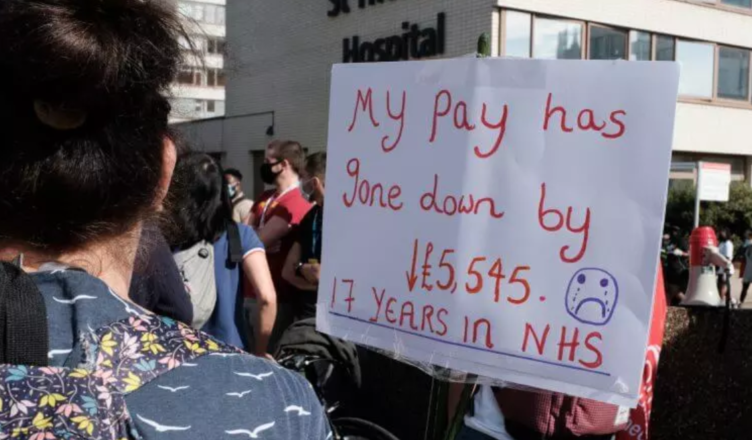All four trade unions in the health service, GMB, RCN, Unison, and Unite, conducted ballots in the summer on the government’s derisory pay offer of 3%. The offer was overwhelmingly rejected in all of the ballots. Unison members voted 80% against, RCN members by 90% and GMB members by 93%. GMB and Unite are now saying that they will run ballots on industrial action, whilst RCN and Unison say that they will hold indicative ballots first.
There is growing anger among health workers, who have sacrificed much during the pandemic and now additionally face price rises in food and energy and a ten year long pay freeze.
However, union leaders may well attempt to ignore the result of the ballots, and will use further ballots to delay any move to strike action.
It is vital that health workers begin to organise to take strike action and that they seek to build links between health workers in all sectors, going beyond union membership.
Meanwhile a similar derisory pay offer in local government has been significantly rejected, forcing Unison to move to a strike ballot. The National Education Union is also under pressure to launch a pay campaign, including possible strike action.
It is therefore vital that workers in these different sections of the public sector, health and local government argue for joint strike action over this coming period. A united struggle in the public sector, will give encouragement to workers in the private sector to also take action. Private sector workers are suffering from casualisation and zero hours contracts, low pay and fire and rehire practices by the bosses.
We cannot rely on the union leaders and the TUC to carry this out. Workers have to look to themselves to organise despite the union bureaucrats, and they must organise across different unions and different sectors.

